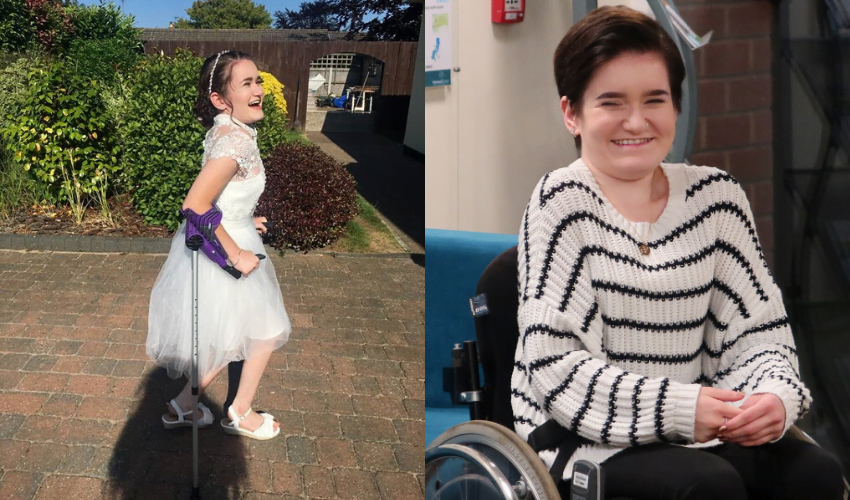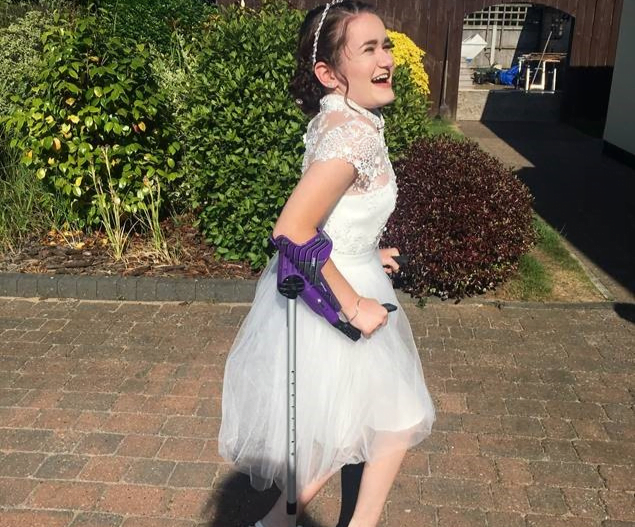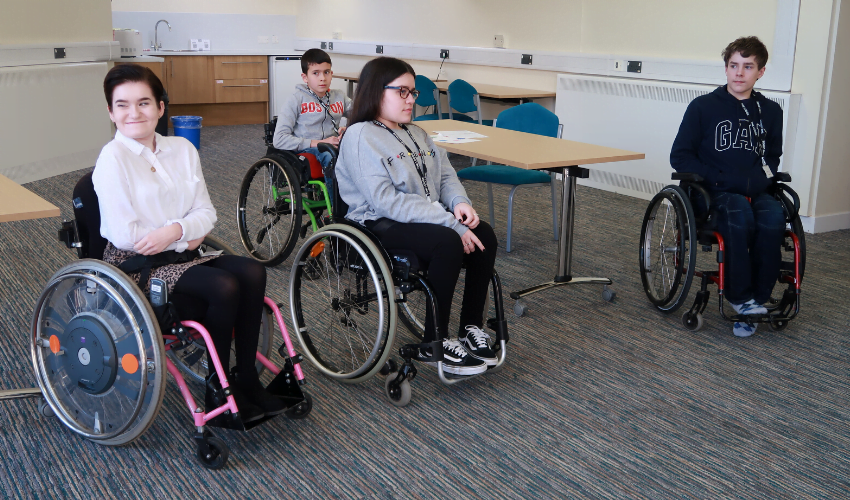Daisy’s story: Growing up with an incomplete spinal cord injury
4 March 2020

When she was only nine months old, Daisy was diagnosed with a cancerous tumour on her spine. Although the tumour was removed through surgery, it had compressed her spinal cord. This resulted in Daisy sustaining an incomplete spinal cord injury – although her spinal cord was compressed, it had not been completely severed. In Daisy’s case, this means that she is able to walk short distances using a walking stick.
“When I’m out in public I use my wheelchair, it stops me from getting fatigued. If I’m at home I can use a walking stick to get around.
“Using a wheelchair when I’m out helps me get around independently. It means I don’t need someone following me around carrying my bags when I’m at college. It’s also safer, as I can fall quite easily while walking.”

Daisy getting ready for her Year 11 prom
Just because Daisy can walk with a stick for short distances doesn’t mean that she avoids difficulties in her day to day life. Daisy says that one of the main problems she encounters comes from people’s reactions to seeing her stand or walk.
“I suppose with an incomplete injury, things can be a bit easier at home. I’m able to walk around the house, I can get up and carry a drink back to where I was sitting. However, when I’m in public people can react oddly if they see me standing up.
“I get a lot of questions about it, but I’ve noticed as people get older they ask questions less and just give funny looks. The amount of times I’ve had older people just stare at me instead of asking questions.
“These looks make me feel like I have to explain the whole history of my injury to them!”
Daisy has also found it quite difficult interacting with other people with a spinal cord injury. She described having what could be called “walker’s guilt”. This is quite a common issue faced by people with an incomplete spinal cord injury. Some may feel like their injury is less valid than people with complete injuries.
“I sometimes feel like I’m not disabled enough for the spinal cord injury community, but also too disabled to be considered ‘able-bodied’.
“I can feel self-conscious about walking out of my chair when I’m around people who can’t.”
Daisy overcomes this self-consciousness by remembering that she does what she needs to do to keep healthy. She bears in mind that every injury is different, One of the things that helped her reach this conclusion is by talking to other young people in a similar situation.

Daisy taking part in our Youth Advisory Group
Daisy is a member of our Youth Advisory Group (YAG) – this is a group of young volunteers who influence our services for children and young people, helping us ensure we are providing relevant support. Here she was able to meet other young people with similar stories.
“Before I became part of the YAG I had no idea there were so many young people in my situation.
“I met a girl on a YAG weekend who can walk too. We both realised that we often feel uneasy in certain situations because don’t feel disabled enough. It was really helpful to share those feelings.”
“I’ve had more support than I ever imagined through taking part in the YAG.”
Since volunteering on our YAG, Daisy has also been receiving mentoring. Since she will soon be going to university to study SEN and disability studies, she has benefited from speaking to someone else who is also about to go to university with a spinal cord injury.
“We shared tips and advice, helping each other along the way. I would definitely recommend mentoring. Even if you just have a couple of questions and need to hear a friendly voice. It’s good to chat with someone who understands.”
Finally, we asked Daisy what advice she would give to another young person who is growing up with an incomplete spinal cord injury. She said for her, the most important thing is remaining as independent as possible.
“Don’t just sit on the side-lines. If something is inaccessible to you, make your voice heard. If something is making you uncomfortable, tell someone. Remember that you can live an independent life, you just have to get involved.”
Do you want to talk to someone about living life to the full with an incomplete spinal cord injury? Learn more about our mentoring service.


